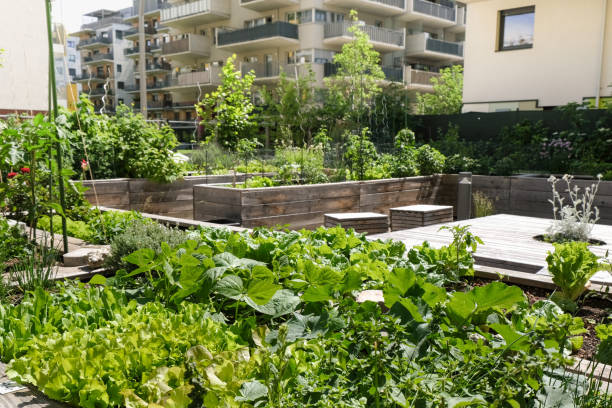Shaping Societies: The Sociocultural Implications of Urban Farming
Urban farming, a seemingly anachronistic practice, is steadily gaining momentum in modern cities. Driven by a host of factors, this trend is affecting societal dynamics in complex ways. This article delves into the historical context, sociological developments, and cultural implications associated with the rise of urban farming.

Urban Farming: A Historical Overview
Urban farming, also known as urban agriculture, is not a new phenomenon. It has been a part of urban life since ancient civilizations, where city dwellers grew food within city boundaries to supplement their food supplies. However, the industrial revolution and subsequent urbanization saw a decline in this practice, with cities focusing more on commercial and industrial development. It is only in recent decades that a resurgence of urban farming has occurred, driven by environmental concerns, food security issues, and a shift towards sustainable living.
Current Trends and Cultural Shifts
Today, urban farming is being redefined by a new generation of city dwellers who view it not only as a means to grow food but also as a tool for community building, environmental conservation, and promoting mental well-being. Urban farms now dot the landscapes of cities around the world, from rooftop gardens in New York to community farms in London. These farms are not just spaces for cultivating plants, but also for fostering connections among community members and creating a sense of belonging in the urban jungle.
The Sociocultural Impact of Urban Farming
Urban farming is more than just a trend; it is a cultural transformation with profound sociological implications. By bringing agriculture into the heart of the city, it challenges traditional notions of urban life and redefines the relationship between people and their environment. Urban farming fosters social interaction and community engagement, as people come together to grow food, learn from each other, and care for their shared environment. It also promotes food security, environmental sustainability, and mental well-being, addressing some of the most pressing issues facing urban populations today.
The Research Behind the Impact
Numerous studies have highlighted the benefits of urban farming. A study by the American Journal of Public Health found that urban farming could help alleviate food deserts in cities, while research by the University of California, Berkeley, suggests that urban farms could reduce carbon emissions by decreasing the need for food transport. Furthermore, a study by the University of Pennsylvania found that greening vacant urban land reduced feelings of depression in city dwellers, underscoring the mental health benefits of urban farming.
Urban Farming: A Catalyst for Societal Change
While the practice of urban farming is still evolving, its impact on society is undeniable. As a tool for community building, environmental conservation, and mental well-being, it has the potential to transform urban societies in profound ways. As we continue to grapple with the challenges of urbanization, climate change, and social disconnection, urban farming offers a fresh, innovative, and sustainable approach to city living.
In conclusion, urban farming is a potent force for societal change, reshaping our cities, our communities, and our relationships with the environment. As we continue to explore this cultural phenomenon, we must appreciate its historical roots, understand its current trends, and anticipate its future implications. The rise of urban farming is not just a return to our agricultural past, but a stride towards a sustainable, connected, and resilient urban future. Read below to delve deeper into this fascinating topic.






